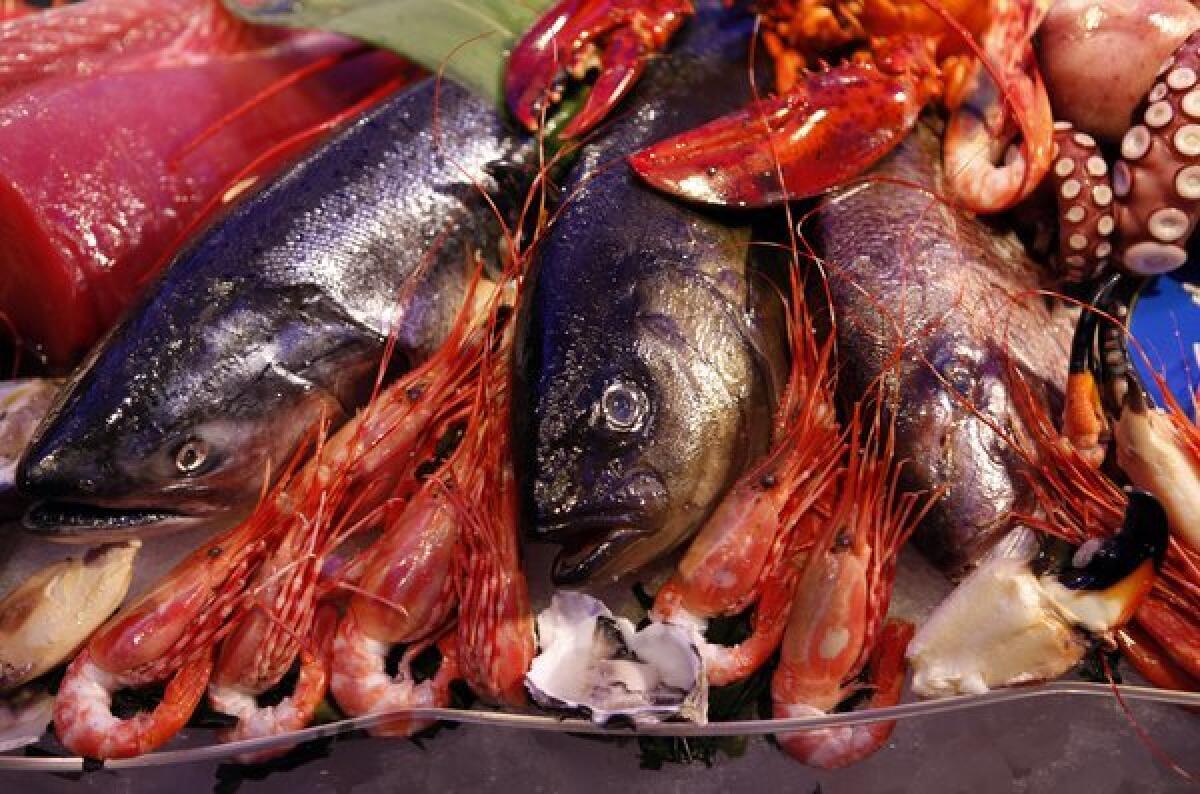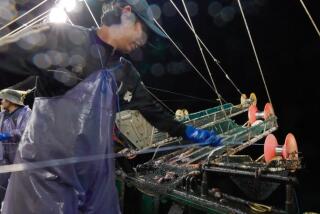Seafood fraud widespread in N.Y., probe finds

This post has been corrected. See note below.
There’s a good chance that the white tuna sashimi served up at your favorite Manhattan sushi joint isn’t white tuna at all.
Instead, 94% of the fish labeled as white tuna in New York turned out to be escolar, a type of snake mackerel with a toxin linked to digestive problems, according to an investigation by conservation and advocacy group Oceana.
DNA tests of 142 seafood samples taken from New York grocery stores, restaurants and sushi venues showed that 39% were mislabeled as different species, according to Oceana.
Earlier Oceana tests showed a 31% fraud rate in Miami, 48% in Boston and 55% in Los Angeles.
Out of 81 retail outlets probed in New York -- which included shops in Manhattan, Queens, Brooklyn, Staten Island, Commack, Scarsdale, Hudson and Edgewater, N.J. -- 58 featured improperly tagged items, the group said.
Small markets had a 40% fraud rate, it said, while 12% of items purchased at national chains were mislabeled. Each of the 16 sushi bars targeted served fish that didn’t match its menu description.
Seafood purported to be red snapper turned out to be tilapia, white bass, ocean perch and even tilefish, which sits on the U.S. Food and Drug Administration’s do-not-eat list for pregnant and nursing women because of its high mercury content.
[For the record, 1:30 p.m., Dec. 14: An earlier version of this post stated that tilefish is on the FDA’s do-not-eat list. Specifically, it is on the do-not-eat list for pregnant and nursing women.]
The U.S. currently imports more than 90% of its seafood.
“With an increasingly complex and obscure seafood supply chain, plus lagging federal oversight and inspection of rising seafood imports, it is difficult to identify who along the supply chain perpetrates the fraud,” according to the Oceana report.
In October, celebrity chefs such as Mario Batali, Rick Bayless and Thomas Keller joined 500 other restaurant owners on an Oceana petition to stop seafood fraud.
ALSO:
Seafood in L.A. frequently mislabeled, group says
Target commits to 100% sustainable, traceable fish by 2015
S.F. Chinese group sues over shark fin ban, alleges discrimination
More to Read
Inside the business of entertainment
The Wide Shot brings you news, analysis and insights on everything from streaming wars to production — and what it all means for the future.
You may occasionally receive promotional content from the Los Angeles Times.











